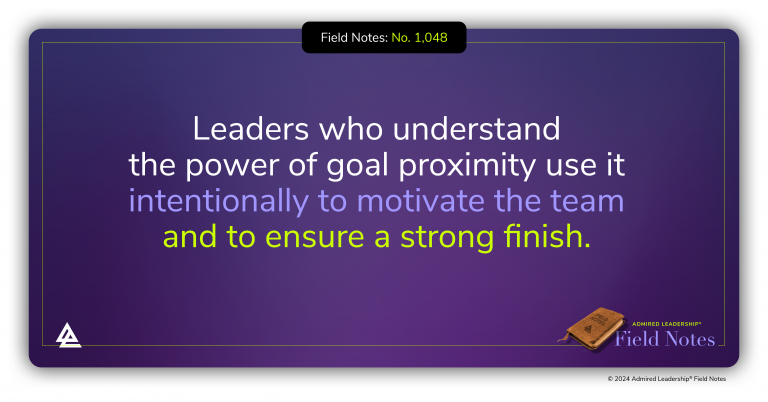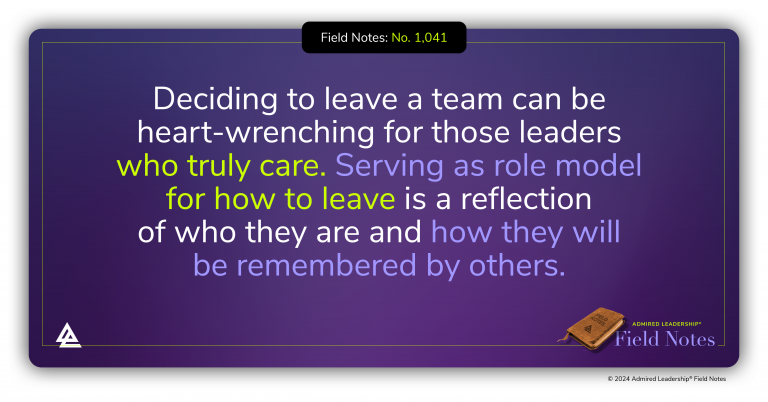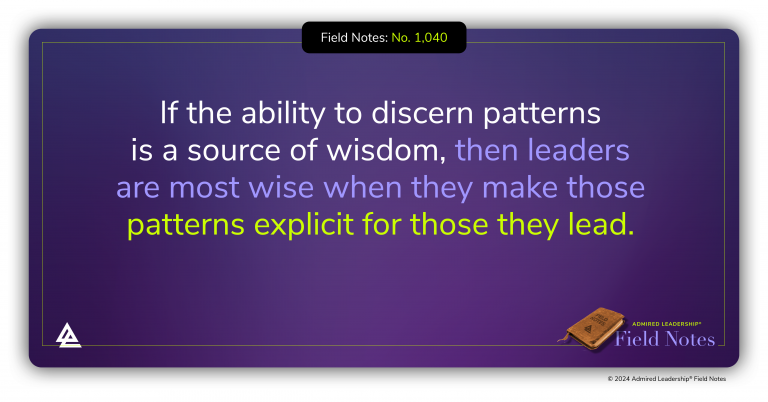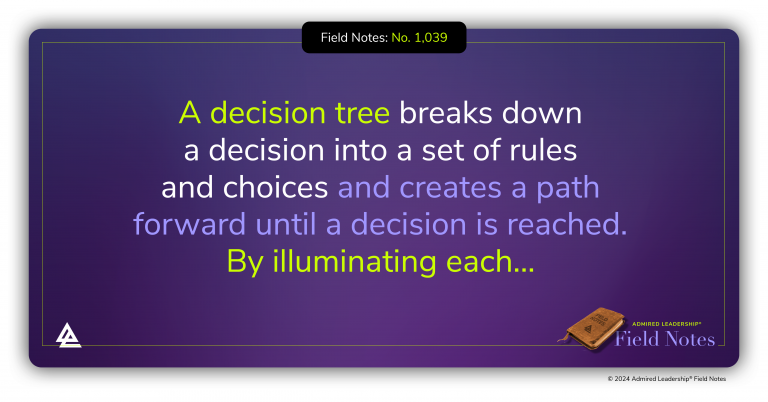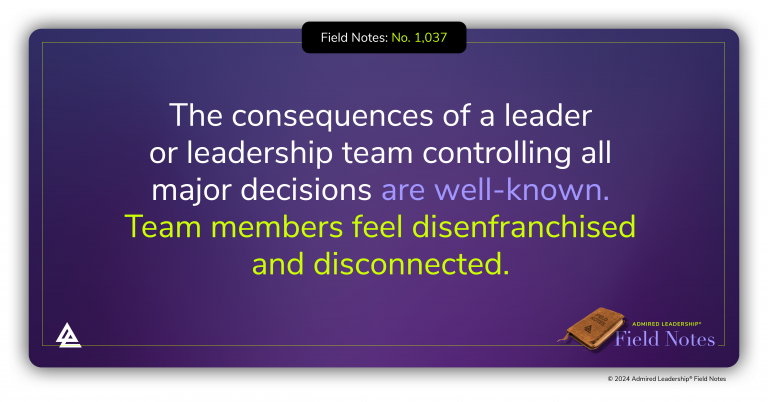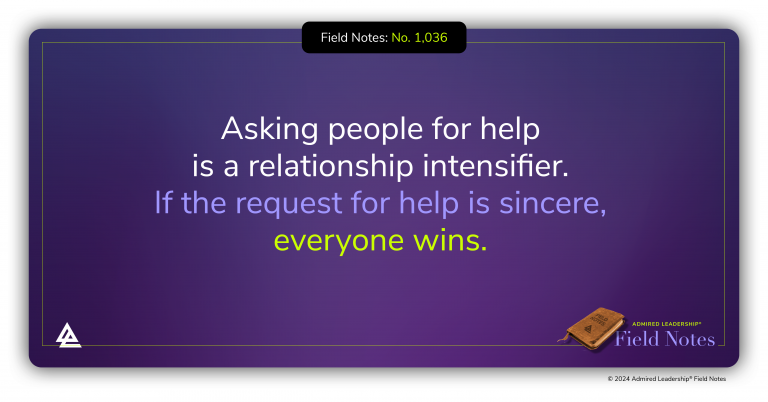Field notes
Field Notes
Our daily Field Notes email is just the kind of jumpstart you need. A fast read. Maybe less than a minute. Because sometimes it just takes one insight to change the trajectory of the day.
Subscribe
Search Field Notes
If the ability to discern patterns is a source of wisdom, then leaders are most wise when they make those patterns explicit for those they lead. No one gets better without understanding the patterns that get in their way. Good leaders call them out, knowing all the while that patterns are created by behavior and actions and can be interrupted or changed with different choices. To paraphrase Mark Twain, harmful patterns and diapers must be changed for the same reason.
The decision-maker starts with a presumptive question that serves as the foundation for the tree. For instance, the initial variable in the dessert example may be cost: Do we have an unlimited budget for the dessert? The answer Yes might take us to the next branch question: Do we have more than 24 hours to create the dessert? A No answer to the foundational question might take us to a branch that asks: Do we need to make the dessert as cheaply as possible? You get the idea.
The more complex or highly variable the decision, the more useful a decision tree would be. Try it the next time you face a decision with a host of possibilities at nearly every point in the process. A decision tree might paint a more manageable and vivid picture.
Waiting for the next notable experience doesn’t prevent good leaders from creating distinctive and remarkable relationships with team members. By gaining a deep understanding of who people really are and creating the connections all people desire, leaders can forge thick relationships with team members that make them feel extra special.
Some leaders can’t give up control or don’t feel comfortable unless they own all the important decisions for the team or organization. Even when they delegate less critical decisions to others, they maintain “veto power” over the decision. If they don’t like the decision, they get involved and change it. The idea of owning or controlling all the significant decisions is not limited to individual leaders. Senior leadership teams can exert the same control and veto power.
In one well-known organization where the management team controls nearly every call, the senior team is known as “the deciders” by their colleagues throughout the enterprise. It is a vivid label team members use to describe the senior team’s decision-making status. It is not a compliment.
The idea you want to learn from this person and would do anything for that chance acts like a magnet to attract positive affect. Of course, sincerity matters most. If done just to create goodwill, the request will usually backfire. Most people are good souls. They hold positive values, stand for quality, and act with good intentions. Better yet, they have a real desire to help good people, even relative strangers. Using this to your advantage is never deceptive or manipulative. Asking people for help is a relationship intensifier. If the request for help is sincere, everyone wins.
